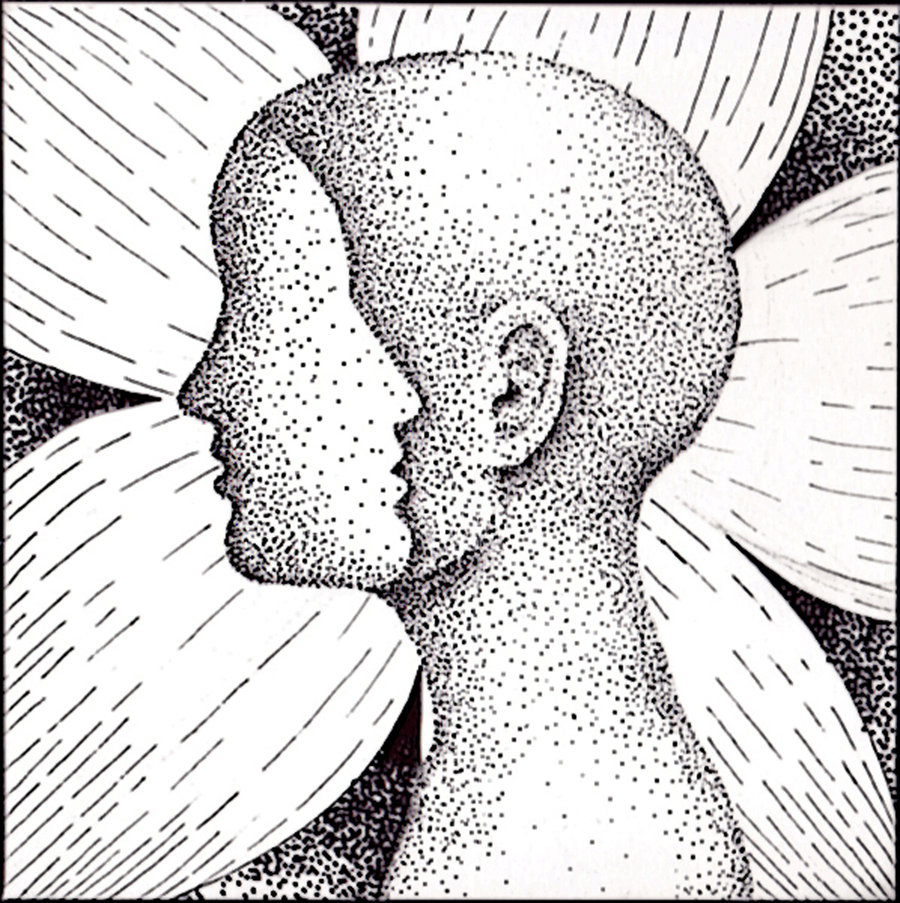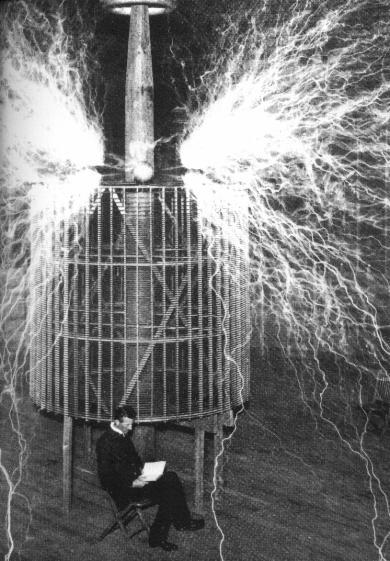

|
“Your vision will become clear only when you look into your heart. Who looks outside, dreams; who looks inside, awakes.” — Carl Jung |
1 July 2014
|
||
|
Future Self I imagine my inner working — Jim Culleny, 6/28/14 |
2 July 2014
|
||
|
May we hug trees |
3 July 2014
|
||
|
Tribute to patriots Let us celebrate today the courage of men and women in our intelligence service who have decided that their allegiance is to the Constitution and to the American People, rather than to their superiors. We know who has taken over our country and how they have done it because these whistleblowers have taken great personal risks to tell us what they know. We have heard much about Ed Snowden in the last year, and Chelsea Manning in the years before that. There will be more in the future. Here are some less-known CIA whistleblowers of the last 10 years: Colleen Rowley told us some of what the Bush Administration knew about 9/11 before the attack, and what they knew about Iraq before the invasion. “It is the duty of the patriot to protect his country from its government.” — Thomas Paine |
4 July 2014
|
||
|
As human beings, our greatness lies not so much in being able to remake the world—that is the myth of the “atomic age”—as in being able to remake ourselves. — Gandhi |
5 July 2014
|
||
|
Discontinuity You keep thinking the future is going to be like the past. The future is going to be nothing like the past. Even your expectation that the future is going to be like the past worked in the past, but it won’t work in the future. — Josh Mitteldorf |
6 July 2014
|
||
|
Wisdom of Hypatia “Happy, thrice happy! they who once have dared, even though breathless, blinded with tears of awful joy, struck down upon their knees in utter helplessness, as they feel themselves but dead leaves in the wind which sweeps the universe—happy they who have dared to gaze, if but for an instant, on the terror of that glorious pageant; who have not, like the young Astyanax, clung shrieking to the breast of mother Nature, scared by the heaven-wide flash of Hector’s arms, and the glitter of his rainbow crest! Happy, thrice happy,! even though their eyeballs, blasted by excess of light, wither to ashes in their sockets!—Were it not a noble end to have seen Zeus, and die like Semele, burnt up by his glory? Happy, thrice happy! though their mind reel from the divine intoxication, and the hogs of Circe call them henceforth madmen and enthusiasts. Enthusiasts they are; for Deity is in them, and they in It. For the time, this burden of individuality vanishes, and recognising themselves as portions of the universal Soul, they rise upward, through and beyond that Reason from whence the soul proceeds, to the fount of all—the ineffable and Supreme One—and seeing It, become by that act portions of Its essence.” |
7 July 2014
|
||
|
Anti-intellectual intellectual Books! ’tis a dull and endless strife: One impulse from a vernal wood Sweet is the lore which Nature brings; Enough of Science and of Art; — Wordsworth |
8 July 2014
|
||
|
Why Nikola Tesla was the Greatest Geek who Ever Lived Geeks stay up all night disassembling the world so that they can put it back together with new features. They tinker and fix things that aren’t broken. Geeks abandon the world around them because they’re busy solding together a new one. They obsess and, in many cases, they suffer. One hundred forty-eight years ago today, a Serbian-American inventor by the name of Nikola Tesla was born. — Read more… “I do not think there is any thrill that can go through the human heart like that felt by the inventor as he sees some creation of the brain unfolding to success... Such emotions make a man forget food, sleep, friends, love, everything.” |
9 July 2014
|
||
|
May human beings and other people learn to live in harmony with nature. |
10 July 2014
|
||
|
Renascence, condensed for modern readers
— Edna St Vincent Millay |
11 July 2014
|
||
|
Title VII This month marks the 50th anniversary of the enactment of the 1964 Civil Rights Act, a milestone in the centuries-long struggle for equality by people of color and women. An extended New Yorker article tells the story, with details that were new and surprising to me. Nixon ran against Kennedy in 1960 saying he would appoint a Black member of his cabinet. Kennedy accused him of ‘racism at its worst’. Alice Paul, a leader of the women’s suffrage movmement, didn’t rest on her laurels when women were granted the vote in 1920. She wrote an Equal Rights Amendment and introduced it (first) in the Congress of 1923. She continued to fight for the ERA through the ensuing decades, opposed by such liberals as Eleanor Roosevelt, the League of Women Voters, the AFL-CIO and, of course John Kennedy. She was still a powerhouse in 1963 when at the age of 88 she lobbied and maneuvered to get have women included in the landmark Civil Rights bill. Martha Griffiths, a stalwart congresswoman from Michigan, introduced Title VII and defended it vigorously from Democratic opposition. It is not quite true, as historic legend would have it, that women were included in the bill by Southern racists in a cynical attempt to kill the bill. For twenty years, the belief that the sex provision was a monkey wrench that unintentionally became part of the machine was the conventional wisdom about Title VII. But when scholars—including Michael Gold, Carl Brauer, Cynthia Deitch, Jo Freeman, and Robert Bird—dug into the archives they not only learned that the real story of the sex amendment was quite different; they essentially uncovered an alternative history of women’s rights. The person behind the sex amendment was the seventy-nine-year-old leader of a tiny fringe organization called the National Woman’s Party. Alice Paul was a major figure in the American suffragist movement, back at the time of the First World War. Paul was a Quaker. She attended Swarthmore and then the University of Pennsylvania, where she earned the first of many advanced degrees. In 1907, she went to study in Britain and got caught up in the suffragist movement, led by Emmeline Pankhurst. It changed her life.
Title VII enabled a limited rapprochement between feminists and civil-rights organizations. The first Title VII gender-discrimination case to reach the Supreme Court was Phillips v. Martin Marietta, in 1971. In a unanimous decision, the Court held that Martin Marietta’s policy of not hiring women with children of preschool age violated Title VII. The case was brought by a white woman, Ida Phillips, who was represented by the Legal Defense and Education Fund of the N.A.A.C.P. |
12 July 2014
|
||
|
Making of a mystic For most of my adult life, I have pursued mysticism against the strong undertoe of my scientific worldview. I have sought out mystical experiences. I have argued with myself, logically enough, that scientific theories pursued to their depths actually lead to mysticism. Today during a leisurely swim across a lake too warm for vigorous exercise, I bobbed and nodded and hung motionless as long as I could hold my breath. I looked up and realized that that battle is over. Rather than seeing living beings as chance agglomerations of matter in a purposeless, mechanical universe, I have come to see the world and all within it as animated with a life force. Years of working on myself have quieted the old suspicion that I am deluding myself with an extra-scientific outlook, and along with it, my ancient terror of death has been muted as well. — Josh Mitteldorf |
13 July 2014
|
||
|
Bastille Day The Great Revolution, that set all Europe astir, that overthrew everything, and began the task of universal reconstruction in the course of a few years, was the working of cosmic forces dissolving and re-creating a world. Two great currents prepared and made the Great French Revolution. One of them, the current of ideas, concerning the political reorganisation of States, came from the middle classes; the other, the current of action, came from the people, both peasants. and workers in towns, who wanted to obtain immediate and definite improvements in their economic condition. —from Pëtr Kropotkin’s treatise on the French Revolution. |
14 July 2014
|
||
|
All that jazz I admit to a difficulty appreciating jazz. I rarely can convince myself that the music is worth getting to know and understand more deeply. The exception is Bernstein, who knew better than anyone how to make serious music in a jazz idiom. Listen to Bernstein’s Prelude and Fugue and Riffs, for Jazz Ensemble |
15 July 2014
|
||
|
Dear Earth It is not heaven: bitter seed |
16 July 2014
|
||
|
Empower children! We spend the first twelve months of our children’s lives teaching them to walk and talk and the next twelve telling them to sit down and shut up. — Phyllis Diller, born this day in 1917 |
17 July 2014
|
||
|
Soundscape R Murray Schafer thinks about the sonic environment of our ancestors, the music of birds and streams and wind and rain that has been supplanted in modern times by the din of jackhammers, the roar of jets overhead, the traffic noises and ever-present whir of machines. “Soundscape” is Schafer’s word for the sonic environment, to which he has directed our attention. Before we can Listen to Epitaph for Moonlight by R Murray Schafer, born this day in 1933, as sung by Roanoke College Choir. |
18 July 2014
|
||
|
A great deal of radical common sense Many good Bertrand Russell stories in the New Humanist Born into the British aristocracy and provided with an impeccable education, he appreciated all the good things about the nobility, and had no illusions about their foibles, or their global culpability. He saw through war early in life, and protested actively from the First World War in 1914 through the Vietnam War, protesting which he was arrested and forcibly dragged to jail at age 96. |
19 July 2014
|
||
|
Irreducible complexity The earth is 4½ billion years old. The oldest fossil life remains are more than 4 billion years old. As close as we can tell, life began on primeval Earth just about as soon as the planet was cool enough for liquid water. In the 1950s, when biochemistry was new and headstrong, everyone assumed that simple combinations of organic chemicals would be able to reproduce themselves and jumpstart the evolutioary process. In Harold Urey’s UChicago lab, electrical discharge in a flask of methane, hydrogen, ammonia and water had simulated lightning in earth’s primeval atmosphere, and guess what! Trace quantities of amino acids, building blocks of protein, were discovered in the reaction products. The rest was supposed to be easy. But here we are 60 years later, and there have been many, many attempts to engineer a living, evolving chemistry in a test tube. None of them has succeeded. The complexity gap between living systems and engineered systems remains deep and wide. We have no idea how to put together a system that is able to reproduce itself, let alone one that is simple enough to have arisen by chance. How did life get its start? This is one of the greatest mysteries of science. The concept of panspermia is as old as Anaxagoras, and is still perfectly respectable science. The fact that complex cells appeared so quickly after it first became possible for them to survive on earth is cited as evidence that spores or bacteria arrived on earth from space, surviving a long trip on a meteor. This is a solution for this one, limited question, “How did it happen so fast?” But it only pushes back the bigger question of how life got its start. Maybe there was one immensely improbable event leading to life, somewhere in a very distant place, many billions of years ago. Or maybe the truth is yet stranger. I’m sure you can imagine possibilities, and I encourage you to do so. — Josh Mitteldorf The phrase “irreducible complexity” and the idea that it is difficult to understand how all the ingredients necessary for a living, evolving system fell into place are staples of the “creation science” literature. I think they have a point that evolutionary scientists would do well to address. It is a far more viable PR strategy to be honest and say we don’t have an explanation than to pretend that these things are less mysterious than they are. I don't follow the creation scientists on their next leap, which is often to a Christian-style Creator. |
20 July 2014
|
||
|
The brain injury that made me a math genius If you could see the world through my eyes, you would know how perfect it is, how much order runs through it, and how much structure is hidden in its tiniest parts. The universe itself and everything we can touch and all that we are is made of the most beautiful geometric patterns imaginable. I know because they’re right in front of me. Because of a traumatic brain injury, the result of a brutal physical attack, I’ve been able to see these patterns for over a decade. This change in my perception was really a change in my brain function, the result of the injury and the extraordinary and mostly positive way my brain healed. All of a sudden, the patterns were just . . . there, and I realize now that my injury was a rare gift. I’m lucky to have survived, but for me, the real miracle—what really saved me—was being introduced to and almost overwhelmed by the mathematical grace of the universe. Doctors tell me that nothing in my brain was newly created or added when I was injured. Rather, innate but dormant skills were released. This theory comes from psychiatrist Darold Treffert, who is considered the world’s leading authority on savants and acquired savants. He ... suggested that all of us have extraordinary skills just beneath the surface, much as birds innately know how to fly in a V-formation and fish know how to swim in a school. Why the brain suppresses these remarkable abilities is still a mystery, but sometimes, when the brain is diseased or damaged, it relents and unleashes the inner genius. This isn’t just my story. It’s the story of the potential secreted away in all of us. — Excerpted from Struck By Genius: How a Brain Injury Made Me a Mathematical Marvel by Jason Padgett and Maureen Seaberg |
21 July 2014
|
||
|
Of Giving Then said a rich man, Speak to us of Giving. And he answered: You give but little when you give of your possessions. It is when you give of yourself that you truly give. There are those who give little of the much which they have—and they give it for recognition and their hidden desire makes their gifts unwholesome. — Kahlil Gibran |
22 July 2014
|
||
|
Blind as a bat Animals perform feats of navigation that make us scratch our heads. It has recently been established that sensitivity to the earth’s magnetic field and to polarized light are part of their secret. Bats use a magnetic compass, and this new study shows that they also use patterns of polarized light from the sky at daybreak and sunset. You and I are not sensitive to the orientation of polarized light (or maybe you are), but bees are, and now it seems that bats, too, can sense polarization. “We had already demonstrated that bats used a magnetic compass that was calibrated by cues observed at sunset,” says [Richard] Holland. “The question was, what cues? It was known that birds calibrate the magnetic field with the pattern of polarization at sunset, so we tried the same for bats.” The original article by Stefan Greif and Richard Holland in Nature is much more modest about how little is known and how much mystery remains. Animals can call on a multitude of sensory information to orient and navigate. One such cue is the pattern of polarized light in the sky, which for example can be used by birds as a geographical reference to calibrate other cues in the compass mechanism. Here we demonstrate that the female greater mouse-eared bat (Myotis myotis) uses polarization cues at sunset to calibrate a magnetic compass, which is subsequently used for orientation during a homing experiment. This renders bats the only mammal known so far to make use of the polarization pattern in the sky. Although there is currently no clear understanding of how this cue is perceived in this taxon, our observation has general implications for the sensory biology of mammalian vision. |
23 July 2014
|
||
|
Don’t give up on deep questions Undoubtedly we have no questions to ask which are unanswerable. We must trust the perfection of the creation so far, as to believe that whatever curiosity the order of things has awakened in our minds, the order of things can satisfy. Every man’s condition is a solution in hieroglyphic to those inquiries he would put. He acts it as life, before he apprehends it as truth. In like manner, nature is already, in its forms and tendencies, describing its own design. Let us interrogate the great apparition, that shines so peacefully around us. Let us inquire, to what end is nature? — from Nature by R W Emerson |
24 July 2014
|
||
|
Milarepa Today is the traditional birthday of Milarepa, poet, sage, penitent, saint in the Buddhist tradition, born in 1040 or maybe 1052. His mother, who was angry about being cheated out of an inheritance, enrolled Milarepa as an adolescent in a school for black magic. He was talented enough to do great damage, invoking an earthquake that led to deaths of his family members and many others. He realized the enormity of his crime, and resolved to redeem himself by doing as much good as he had done harm. He learned to harness his innate mystical gifts for peace and relief of suffering ‘If you lose all differentiation between yourselves and others, |
25 July 2014
|
||
|
Why the New Economy Movement Needs to Think Big Gar Alperovitz has a solution to our economic ills that starts with worker-owned cooperatives and expands from there to assert cooperative political power, in opposition to the Multinationals. |
26 July 2014
|
||
|
Before separation, before self We’re accustomed to think that the Darwinian struggle for existence is a condition of life, and it has always been thus. We imagine that cooperation arose after competition, as alliances became a potent aid in the struggle. We get our genes from our parents, and micro-organisms get their genes from progenitor cells. We read about bacteria that routinely share plasmids – “horizontal gene transfer” – and we think this is a bizzarre, chimerical monstrosity. Carl Woese presents a picture of a time before separate selves, when all partook of the chemical commons, and genes were free-floating templates belonging to no one in particular. One day, an oil film walled off one little portion of the sea, and the chemicals therein spoke the word “mine” for the first time in history. It was the beginning of a great experiment in complexity, of conflict and adaptation to conflict. Sensing and moving and giving and taking became possible, along with (eventually) conceiving and planning. Perhaps this was also the beginning of good and evil. |
27 July 2014
|
||
|
The lyrical Stravinsky Listening to The Fairy’s Kiss, we might imagine Tchaikovsky (but with some extra surprises in store for the listener who attends to details or studies the score). — Listen to Riccardo Muti(born this day in 1941) and the Philadelphia Orchestra playing Divertimento from Le Baiser de la Fée |
28 July 2014
|
||
|
Sonnets to Orpheus Wolle die Wandlung. O sei die Flamme begeistert, Will transformation. O long for the flame, — Rainer Maria Rilke, tr A. S. Kline |
29 July 2014
|
||
|
Pro-Peace in Israel Some 5,000 other dangerous fanatics and I gave up a small slice of our weekend to express our intolerably radical views to a hostile or, at best, indifferent public, surrounded by a thick protective wall of visibly disgruntled border police and a 20-foot wide cordon of metal barriers. Some waved the Palestinian national flag; many carried signs saying things like “Stop the War” and “End the Occupation”. We chanted “Jews and Arabs refuse to be enemies” and distributed bumper stickers with the subversive slogan “It won’t end until we talk”. One guy carried a clutch of olive branches. Tea candles spelled out the Hebrew word slicha – forgiveness. |
30 July 2014
|
||
|
Motherly love An octopus lays eggs but once, her mouth seals over, she eats no more and dies soon thereafter. This life plan is called semelparity. Her last act in life is standing guard over the eggs, keeping predators away, fanning them with freshly-oxygenated water. In cold water, it can take awhile for the eggs to develop. Here is the story of an octopus mom in the depths of Monterey Bay who was caught on camera staying by her eggs without straying for 4½ years, kept alive by love. The eggs hatched. Mom died. — Read David Perlman writing in SFGate |
31 July 2014
|
||


























